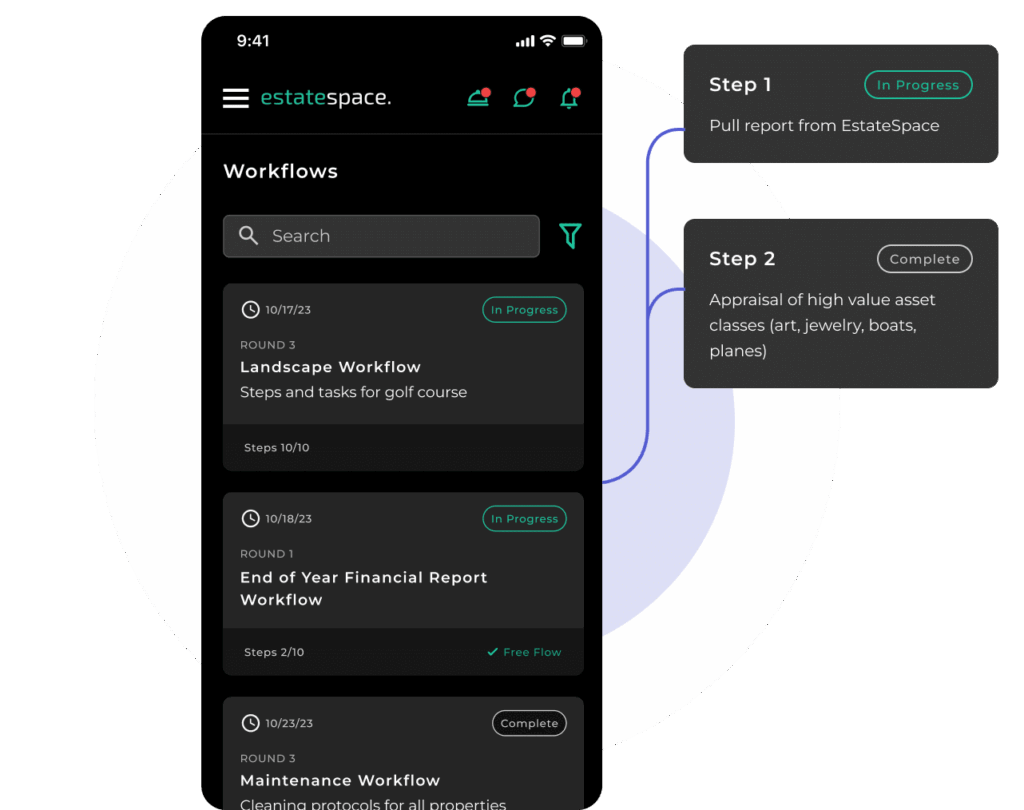Property and household management professionals understand that maintaining high-value assets requires more than good intentions—it demands systematic organization and strategic planning. However, effective household management software implementation has proven benefits that extend far beyond simple upkeep, directly impacting asset preservation, client satisfaction, and operational profitability.
Furthermore, today’s property management professionals must navigate complex maintenance schedules, vendor relationships, warranty tracking, and expense management while preserving asset value and ensuring regulatory compliance. In addition to these challenges, our detailed guide on Household Management Systems That Actually Simplify Your Life provides foundational strategies that complement professional property management practices.
The Hidden Costs of Disorganized Household Management Software Implementation
Disorganized maintenance management creates cascading problems that affect every aspect of property operations. Moreover, property managers who struggle with systematic organization often experience significantly higher operational costs and client dissatisfaction.
Critical pain points include:
- HVAC system failures due to missed preventive maintenance schedules, consequently resulting in expensive emergency repairs and temporary cooling/heating solutions
- Appliance breakdowns from overlooked warranty expirations and inadequate maintenance tracking
- Vehicle maintenance oversights subsequently leading to costly repairs and potential safety liability issues
- Lost warranties and service agreements inevitably causing unnecessary expenses for covered repairs
Additionally, poor organization affects asset lifecycle management, potentially reducing property values and creating compliance issues with insurance providers and regulatory authorities.
Strategic Approaches to Household Management Software Implementation
Centralized Documentation and Expense Tracking
Professional household management software begins with comprehensive documentation systems that integrate all maintenance-related information. Therefore, successful property managers implement centralized platforms that consolidate:
Financial Documentation:
- Vendor invoices and receipts systematically organized by property and service category
- Bills of sale for all appliances, systems, and equipment
- Insurance policies with coverage details and renewal dates
- Warranty documentation with expiration tracking and claim procedures
Maintenance Records:
- Service history logs for HVAC systems, appliances, and vehicles
- Inspection reports with photo documentation and compliance verification
- Preventive maintenance schedules specifically aligned with manufacturer recommendations
- Emergency repair documentation including response times and resolution details
Advanced Asset Lifecycle Management in Household Management Software
Household management software professionals recognize that proper organization directly impacts asset preservation and valuation. Similarly, systematic tracking enables proactive decision-making about repairs, replacements, and upgrades.
Key lifecycle considerations:
- Preventive maintenance scheduling to extend equipment lifespan and maintain warranties
- Performance monitoring to identify declining efficiency before major failures occur
- Replacement planning based on age, condition, and technological advancement
- Value assessment particularly for insurance purposes and estate planning requirements
Technology Integration for Professional Property Management
Modern property managers leverage sophisticated platforms that automate routine tasks while providing comprehensive oversight capabilities. Additionally, these systems enable real-time collaboration between property managers, vendors, and property owners.
Essential technology features:
- Automated reminder systems specifically for maintenance schedules and warranty expirations
- Mobile accessibility for field teams and remote property oversight
- Vendor management portals with performance tracking and contract management
- Financial integration effectively linking maintenance expenses to budgets and tax preparation
Specialized Maintenance Management for High-Value Assets
HVAC and Climate Control Systems
HVAC systems represent significant investments requiring specialized household management software approaches. Furthermore, these systems directly impact property comfort, air quality, and energy efficiency.
Professional HVAC management includes:
- Quarterly inspection schedules with filter replacement and system optimization
- Seasonal preparation protocols specifically for heating and cooling transitions
- Energy efficiency monitoring to identify optimization opportunities
- Emergency response procedures with pre-approved contractor networks
Pain point resolution: As a result, systematic HVAC maintenance reduces emergency service calls by up to 70% while simultaneously extending system lifespan and maintaining manufacturer warranties.
Appliance and Equipment Management with Household Management Software
High-end properties feature sophisticated appliances and equipment requiring specialized maintenance protocols. Moreover, these assets often represent substantial investments that require careful lifecycle management.
Comprehensive appliance management:
- Manufacturer maintenance schedules seamlessly integrated with property calendars
- Warranty tracking systems with automated expiration alerts
- Performance monitoring to identify efficiency decline and potential issues
- Replacement planning strategically based on age, reliability, and technological advancement
Vehicle Management
Household management software often includes luxury vehicles, specialty equipment, and utility vehicles. Additionally, proper vehicle maintenance ensures safety, reliability, and asset preservation.
Professional vehicle management encompasses:
- Preventive maintenance scheduling carefully aligned with manufacturer recommendations and usage patterns
- Insurance and registration tracking with automated renewal reminders
- Performance monitoring specifically for fuel efficiency, safety systems, and mechanical reliability
- Storage and security protocols particularly for seasonal vehicles and specialty equipment
Financial Organization and Expense Management with Household Management Software
Budget Planning and Expense Tracking
Effective household management software requires sophisticated financial planning that accounts for routine maintenance, emergency repairs, and capital improvements. Therefore, professional property managers implement comprehensive budgeting systems.
Financial management components:
- Annual maintenance budgets carefully based on asset age, condition, and historical data
- Emergency repair reserves specifically for unexpected equipment failures and urgent repairs
- Capital improvement planning strategically for system upgrades and efficiency improvements
- Tax documentation organization particularly for maintenance expense deductions and depreciation
Vendor Relationship Management
Professional household management software depends on reliable vendor networks and strategic partnerships. Moreover, effective vendor management ensures quality service delivery while controlling costs.
Vendor management best practices:
- Performance tracking systems continuously monitoring response times, quality, and cost effectiveness
- Contract management with clear service level agreements and pricing structures
- Insurance verification consistently ensuring adequate coverage for all service providers
- Backup provider networks specifically for emergency situations and specialized services
Insurance Coordination and Risk Management
Household management software professionals must coordinate with insurance providers to ensure adequate coverage while maintaining compliance requirements. Additionally, proper documentation supports claims processing and risk mitigation.
Insurance management includes:
- Policy review and optimization regularly ensuring adequate coverage for all assets
- Claims documentation with detailed maintenance records and incident reports
- Risk assessment protocols systematically identifying potential liability issues and mitigation strategies
- Compliance monitoring continuously ensuring adherence to insurance requirements and safety standards
Calendar Integration and Scheduling Systems for Household Management Software
Professional household management software requires sophisticated scheduling systems that coordinate multiple properties, vendors, and maintenance requirements. Furthermore, these systems must integrate with broader property management operations.
Scheduling system features:
- Multi-property calendar integration with location-specific maintenance requirements
- Vendor availability coordination effectively optimizing scheduling efficiency and cost control
- Emergency response protocols with priority systems and escalation procedures
- Seasonal preparation scheduling specifically for climate-specific maintenance requirements
Asset Preservation and Valuation Management
Household management software directly impacts property values and asset preservation. Moreover, systematic maintenance documentation supports property valuations and financial planning requirements.
Valuation support includes:
- Maintenance history documentation clearly demonstrating proper asset care and preservation
- Upgrade and improvement tracking strategically supporting increased property valuations
- Energy efficiency documentation highlighting environmental improvements and cost savings
- Compliance verification consistently ensuring regulatory adherence and insurability
Implementing Professional Household Management Software Solutions
Assessment and Planning Phase
Before implementing comprehensive household management software, first conduct thorough assessments of current practices and requirements. Additionally, identify specific pain points and improvement opportunities.
Assessment components:
- Asset inventory with condition assessments and maintenance requirements
- Current system evaluation systematically identifying gaps and inefficiencies
- Vendor network review carefully assessing performance and cost effectiveness
- Technology requirements specifically determining integration needs and functionality requirements
Implementation Strategy
Successful household management software implementation requires phased approaches that minimize disruption while maximizing benefits. Therefore, prioritize critical systems and high-value assets during initial phases.
Implementation phases:
- Phase 1: First, focus on critical system documentation and emergency response protocols
- Phase 2: Next, establish routine maintenance scheduling and vendor coordination
- Phase 3: Then, integrate financial systems and expense tracking capabilities
- Phase 4: Finally, implement advanced analytics and optimization features

The Future of Household Management Software Technology
As technology continues evolving, household management software will become increasingly sophisticated and automated. Moreover, integration with IoT devices, predictive analytics, and artificial intelligence will transform how professionals approach asset preservation.
Emerging trends include:
- Predictive maintenance systems intelligently using sensor data to anticipate equipment failures
- Automated scheduling strategically based on usage patterns and environmental conditions
- Energy optimization systematically through intelligent climate control and utility management
- Remote monitoring effectively enabling proactive intervention and cost optimization
Professional household management software represents a critical component of successful property stewardship. Furthermore, systematic organization, technology integration, and strategic planning enable property managers to preserve asset values while controlling costs and ensuring client satisfaction.
Looking to streamline your household management operations? Discover how EstateSpace’s comprehensive platform can optimize your maintenance workflows, enhance asset preservation, and boost client satisfaction through intelligent organization and automation.



